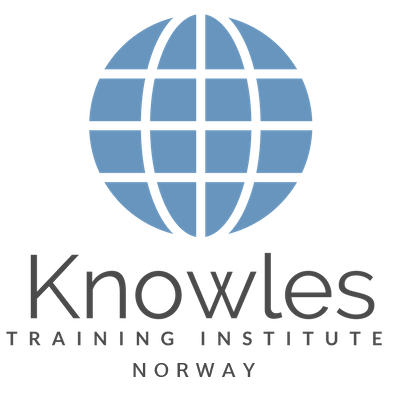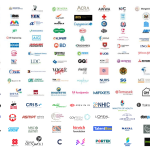Leadership in Crisis Management Training Course in Norway
Our Leadership Courses in Oslo, Bergen, Stavanger, Trondheim, Drammen, Fredrikstad, Kristiansand, Sandnes, Tromsø, Sarpsborg, Skien, Ålesund, Sandefjord, Haugesund, Tønsberg, Moss, Porsgrunn, Bodø, Arendal, Hamar, Ytrebygda, Larvik, Halden, Lillehammer, Mo i Rana, Molde, Horten, Gjøvik, Askøy, Kristiansund, Flåm, Geiranger, Svolvær, and Kirkenes.
Amidst the serene landscapes of Norway, where fjords meet mountains and nature’s tranquility envelops the surroundings, there exists a profound recognition that preparedness is paramount in navigating the tumultuous waters of crisis. In the heart of this Scandinavian haven, a beacon of resilience shines brightly – the Leadership in Crisis Management Training Course.
Imagine a setting where leaders converge, not merely to learn, but to cultivate a mastery of crisis management, honing their skills to navigate the choppy seas of uncertainty with unwavering resolve. Against the backdrop of Norway’s breathtaking vistas, this course stands as a bastion of strength, offering a sanctuary where leaders are forged, tempered by adversity, and equipped with the tools to steer their teams through the fiercest of storms.
As the sun casts its gentle glow upon the rugged landscape, participants engage in immersive experiences designed to challenge, inspire, and transform. Through simulated crises and real-world case studies, they are thrust into the heart of chaos, where split-second decisions can mean the difference between triumph and tragedy. Guided by seasoned experts in crisis management, they learn to harness the power of leadership in the face of adversity, emerging not only as proficient strategists but as beacons of hope for those they lead.
In the midst of Norway’s serene beauty, amidst the whispers of ancient forests and the echoing call of distant peaks, the Leadership in Crisis Management Training Course stands as a testament to the indomitable spirit of human resilience. Here, amidst the tranquil embrace of nature’s grandeur, leaders are empowered to rise above the challenges that lie ahead, armed with knowledge, fortified by experience, and united in purpose. Join us on this transformative journey, where leadership meets crisis with unwavering strength and determination. Join us in Norway, where the path to mastery begins anew.
Who Should Attend this Leadership in Crisis Management Training Course in Norway
In the picturesque landscapes of Norway, where the majesty of nature meets the resilience of the human spirit, a beacon of strategic prowess emerges – the Leadership in Crisis Management Training Course. Nestled amidst the fjords and mountains, this course serves as a sanctuary for leaders seeking to fortify their capabilities in navigating the tumultuous waters of crisis. Against the backdrop of Norway’s serene beauty, participants are invited to embark on a transformative journey, where theory meets practice, and preparation meets opportunity.
This immersive training experience offers a unique blend of theoretical insights and practical exercises, meticulously curated to simulate the complexities of real-world crises. From natural disasters to corporate challenges, participants are equipped with the tools and techniques necessary to lead with clarity, compassion, and decisiveness. Through interactive workshops, dynamic simulations, and expert guidance, they learn to cultivate resilience, inspire confidence, and forge ahead with unwavering resolve.
The Leadership in Crisis Management Training Course in Norway beckons leaders from all walks of life – from seasoned executives and government officials to frontline managers and aspiring entrepreneurs. Whether tasked with safeguarding the welfare of their teams, ensuring the continuity of their organisations, or upholding the interests of their communities, this course offers invaluable insights and strategies for navigating the complexities of crisis. Join us in Norway, where leadership meets crisis with unwavering strength and determination. Leaders in government, corporate executives, emergency response professionals, community leaders.
- Executives
- Team Leaders
- Entrepreneurs
- Educators
- Recent Graduates
Course Duration for Leadership in Crisis Management Training Course in Norway
The Leadership in Crisis Management Training Course in Norway offers flexible durations to accommodate diverse schedules and needs. Participants can engage in intensive learning over three full days, immersing themselves in comprehensive modules and practical simulations. Alternatively, for those with limited time, options include condensed versions spanning one full day, a half day, or even targeted sessions of 90 or 60 minutes, ensuring accessibility without compromising the depth of learning.
- 2 Full Days
- 9 a.m to 5 p.m
Course Benefits of Leadership in Crisis Management Training Course in Norway
The Leadership in Crisis Management Training Course in Norway empowers leaders with the skills and strategies needed to navigate and thrive amidst adversity.
- Learn effective crisis communication techniques.
- Develop strategic decision-making abilities under pressure.
- Enhance team coordination and collaboration during crises.
- Acquire tools for risk assessment and mitigation.
- Gain insights into crisis leadership psychology and emotional intelligence.
- Build resilience to effectively manage stress and uncertainty.
- Understand legal and ethical considerations in crisis management.
- Cultivate adaptive leadership skills to respond to evolving situations.
- Network with industry experts and fellow leaders for ongoing support.
- Receive practical guidance through real-world case studies and simulations.
Course Objectives for Leadership in Crisis Management Training Course in Norway
The Leadership in Crisis Management Training Course in Norway aims to equip participants with the necessary skills and knowledge to effectively lead and manage crises with confidence and resilience.
- Foster a deeper understanding of crisis dynamics and their impact on organisations.
- Develop strategies for maintaining stakeholder trust and confidence during crises.
- Enhance cross-functional collaboration and communication within teams.
- Implement proactive measures for crisis prevention and preparedness.
- Integrate ethical principles into crisis decision-making processes.
- Cultivate a culture of resilience and adaptability within the organisation.
- Identify and leverage strengths within diverse teams during crisis situations.
- Utilise technology and data-driven insights for effective crisis management.
- Establish clear lines of communication and decision-making protocols in crisis scenarios.
- Implement post-crisis evaluation and learning mechanisms for continuous improvement.
- Navigate the complexities of media and public relations during crises.
- Foster a supportive network of peers and mentors for ongoing learning and development.
Course Content for Leadership in Crisis Management Training Course in Norway
The Leadership in Crisis Management Training Course in Norway delves into comprehensive content designed to equip participants with the skills and knowledge needed to effectively lead and manage crises.
- Foster a deeper understanding of crisis dynamics and their impact on organisations:
- Analyze the various types of crises that organisations may face, including natural disasters, financial crises, and reputational crises.
- Examine case studies to understand the ripple effects of crises on different stakeholders and the broader ecosystem.
- Discuss strategies for identifying early warning signs and potential triggers of crises.
- Develop strategies for maintaining stakeholder trust and confidence during crises:
- Explore methods for transparent and timely communication with stakeholders, including employees, customers, and investors.
- Role-play scenarios to practice managing stakeholder expectations and addressing concerns effectively.
- Examine the role of leadership credibility and integrity in rebuilding trust in the aftermath of a crisis.
- Enhance cross-functional collaboration and communication within teams:
- Identify barriers to effective communication and collaboration across departments and hierarchies.
- Implement strategies for fostering a culture of open communication and knowledge-sharing within teams.
- Utilize team-building exercises and workshops to enhance trust and cohesion among team members.
- Implement proactive measures for crisis prevention and preparedness:
- Conduct risk assessments to identify potential vulnerabilities and gaps in existing crisis management plans.
- Develop contingency plans and response protocols tailored to specific crisis scenarios.
- Train employees at all levels of the organisation to recognise and respond to early warning signs of potential crises.
- Integrate ethical principles into crisis decision-making processes:
- Explore ethical dilemmas commonly encountered during crises, such as balancing transparency with confidentiality.
- Discuss the importance of integrity and accountability in crisis management decision-making.
- Examine case studies to understand the long-term ethical implications of crisis management decisions.
- Cultivate a culture of resilience and adaptability within the organisation:
- Instil a growth mindset among employees to embrace challenges and setbacks as opportunities for learning and growth.
- Provide tools and resources for employees to manage stress and build personal resilience in the face of adversity.
- Lead by example, demonstrating resilience and adaptability in your own leadership approach.
- Identify and leverage strengths within diverse teams during crisis situations:
- Conduct team assessments to identify individual strengths and areas for development within the team.
- Encourage cross-functional collaboration and knowledge-sharing to leverage diverse perspectives and expertise.
- Assign roles and responsibilities based on individual strengths and competencies during crisis response efforts.
- Utilise technology and data-driven insights for effective crisis management:
- Explore the latest technological tools and platforms for crisis communication, monitoring, and response.
- Utilise data analytics to assess the impact of crises on operations, finances, and reputation.
- Develop strategies for leveraging technology to streamline crisis management processes and enhance organisational resilience.
- Establish clear lines of communication and decision-making protocols in crisis scenarios:
- Develop communication plans outlining key messages, audiences, and channels for crisis communication.
- Establish decision-making frameworks and escalation procedures to ensure timely and effective responses to crises.
- Conduct regular drills and tabletop exercises to test communication and decision-making protocols under simulated crisis conditions.
- Implement post-crisis evaluation and learning mechanisms for continuous improvement:
- Conduct comprehensive post-mortem analyses to identify strengths, weaknesses, and areas for improvement in crisis response efforts.
- Develop action plans based on post-crisis findings to address gaps and enhance organisational resilience.
- Incorporate lessons learned from past crises into ongoing training and development initiatives for continuous improvement.
- Navigate the complexities of media and public relations during crises:
- Explore strategies for managing media inquiries, interviews, and press conferences during crises.
- Develop crisis communication plans that align with organisational values and priorities while effectively addressing public concerns.
- Role-play scenarios to practice responding to media inquiries and managing public perceptions during crises.
- Foster a supportive network of peers and mentors for ongoing learning and development:
- Facilitate networking opportunities for participants to connect with industry peers and mentors.
- Establish online forums or discussion groups for ongoing knowledge-sharing and peer support.
- Encourage participants to seek out mentors within and outside the organisation for guidance and support in their leadership journey.
Upcoming Course and Course Brochure Download for Leadership in Crisis Management Training Course in Norway
Stay tuned for exciting updates and details on how to access brochures for the Leadership in Crisis Management Training Course in Norway. Be the first to know about upcoming sessions, special events, and exclusive resources to enhance your crisis management skills. Don’t miss out on this opportunity to embark on a transformative journey towards becoming a more resilient and effective leader in times of uncertainty.
We Guarantee 100% Privacy. We Respect Your Privacy. Your Information Will Never Be Shared.


